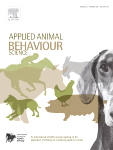Document type: answer to question 7752 published in the Journal officiel de la République française of 19/09/2023
Authors: question: Thomas Ménagé (Rassemblement National - Loiret ). Answer: Ministry of Agriculture and Food Sovereignty
Question: Mr. Thomas Ménagé asks the Minister of Agriculture and Food Sovereignty about the French position concerning the proposed revision of Council Regulation (EC) No. 1/2005 of December 22, 2004 on the protection of animals during transport and related operations. While this legislation has been recognized as outdated and inadequate by the European Food Safety Authority (EFSA) in its recommendations published on September 7, 2022, it has been reported that the Government's position at the meeting of the Council of the European Union's "AGRIPECHE" configuration on January 30, 2023 was to support the development of alternatives to the transport of live animals, and to oppose the ban on exports to countries outside the European Union promoted by certain Member States. In its report of April 17, 2023, the European Court of Auditors highlighted the inadequacy of the current regulations in terms of animal welfare, pointing out, for example, that a third of live animal journeys last more than eight hours. The report also points out that differences in application between Member States could lead transporters to "choose a longer routeto avoid passing through countries with tighter enforcement of EU rules and tougher sanctions." As part of the process of revising the European regulations, certain recommendations have been made to ban journeys lasting more than eight or four hours, depending on the animals concerned, and those carried out during periods of extreme temperature. He therefore asks the Minister what the French position might be with regard to the differences in application of the relevant rules within the European Union, and what action it intends to take at European level to ensure respect for animal welfare.
Answer: As part of the "Farm to Fork" strategy, the European Commission plans to update European Union (EU) legislation on animal welfare, in order to make best use of recent scientific analysis, broaden the scope of the regulations and make it easier to monitor compliance with the legislation, thus improving animal welfare in the EU more generally. It has first carried out a quality review of current legislation. This assessment shows that the adoption of EU legislation on animal welfare has led to an improvement in the welfare of many animals in Europe. However, harmonizing the application of the regulations remains a major challenge in areas such as animal transport, particularly with regard to long journeys, the transport of young or pregnant animals, and livestock exports. This is due to differences in the interpretation of European legislation by Member States. Improving animal welfare and combating animal abuse are priorities for the French government and, for this reason, in March 2023, it carried out a preliminary consultation as part of the review of animal welfare and protection legislation announced by the European Commission. The aim was to identify common ground between stakeholders, and to promote French experience and to European players. With regard to animal transport, a number of actions aimed at improving animal protection during transport were selected. The harmonization of transport control procedures between Member States, the need to better support the principle of using an organizer for long-distance journeys, and the creation of an animal transport observatory at European level have all been brought to the attention of the European Commission. Across the board, a number of principles underpin the government's efforts to update European legislation. In particular, France has called on the European Commission not to create a situation in which European livestock farming distorts competition or becomes less competitive. This means working to strengthen the degree of harmonization in the European Union's internal market; it also means improving the application of European standards by third countries (outside the EU) for the animal products they export to the Union, in a reciprocal arrangement. The French authorities have therefore asked the Commission to include "mirror" measures in the texts of the forthcoming legislative package. It is also the French view that changes should be made in the light of new scientific knowledge, the existence of alternative production methods and impact studies carried out for the purpose. The government will pay close attention to the cost of transition, which should be shared by all players in the chain, down to the consumer. Last, France believes that system transformation must be thought of as a long-term process of transition. It is essential to take into account the economic capacity of the industry to adapt over time to the new requirements, and to set deadlines for the entry into force of legislation so that professionals can plan, particularly with regard to the amortization period for investments in livestock buildings.






